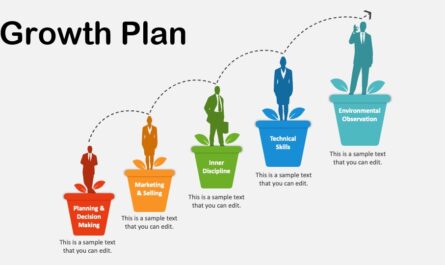In today’s fast-paced business landscape, the pursuit of profitability is a primary goal for entrepreneurs and established companies alike. However, the concept of a “100% profitable business” often seems elusive, as no venture is entirely risk-free. Nevertheless, certain sectors and business models come close to achieving remarkable profitability. In this article, we will explore various business leaders and their strategies, analyzing their contributions and how they align with the idea of high profitability. Narendrabhai Modi Mukesh Ambani Gautam Adani Narayana Murthy
Business Leaders Shaping Profitability
1. Mukesh Ambani
Mukesh Ambani, the chairman and largest shareholder of Reliance Industries, has transformed the Indian business landscape through diversification and innovation. Reliance’s ventures span petrochemicals, telecommunications (Jio), and retail, making it one of the most profitable companies in India. Ambani’s strategic focus on digital services and investments in technology positions Reliance as a leader in profitability.
2. Nita Ambani
Nita Ambani, the chairperson of Reliance Foundation and wife of Mukesh Ambani, plays a crucial role in enhancing the company’s corporate social responsibility (CSR) initiatives. While CSR may not directly contribute to profitability, it fosters goodwill and strengthens the brand image, ultimately driving business success. Her focus on health, education, and rural development resonates with consumers, creating a loyal customer base.
3. N. R. Narayana Murthy
Co-founder of Infosys, Narayana Murthy is a pioneer in the Indian IT sector. His vision led to the establishment of one of the first major IT service companies in India, revolutionizing outsourcing and software development. Infosys’s consistent growth and profitability stem from its commitment to quality and customer satisfaction, setting a standard for the industry.
4. Ratan Tata
Ratan Tata, the former chairman of Tata Sons, has been instrumental in steering the Tata Group towards global success. Under his leadership, Tata expanded into various sectors, including steel, automobiles, and hospitality. The Tata Group’s strong ethical values and diversified portfolio contribute to its enduring profitability and reputation.
5. Sundar Pichai
As the CEO of Alphabet Inc. (Google), Sundar Pichai leads one of the most profitable companies globally. Google’s advertising model, combined with its innovation in artificial intelligence and cloud computing, ensures a steady revenue stream. Pichai’s focus on user experience and privacy also enhances customer trust, driving sustained profitability.
6. Gautam Adani
Gautam Adani, chairman of the Adani Group, has expanded his conglomerate into sectors like energy, logistics, and agribusiness. His aggressive growth strategy, focusing on infrastructure development and sustainability, positions Adani as a key player in India’s economic growth. The group’s profitability stems from strategic investments and a robust business model.
7. Raghuram Rajan
Raghuram Rajan, former governor of the Reserve Bank of India and a renowned economist, emphasizes the importance of sustainable economic practices. His insights into fiscal policy and banking reform guide businesses towards ethical profitability. By advocating for sound financial practices, Rajan contributes to long-term business sustainability.
8. Narendrabhai Modi
Prime Minister Narendra Modi’s economic policies aim to foster a conducive environment for business growth in India. Initiatives like “Make in India” and “Digital India” encourage foreign investment and entrepreneurship. The government’s focus on infrastructure and innovation is designed to create profitable business ecosystems.
| Business Leader | Sector | Key Strategy | Impact on Profitability |
|---|---|---|---|
| Mukesh Ambani | Telecommunications | Diversification and innovation | High growth in digital services |
| Nita Ambani | CSR and Philanthropy | Enhancing brand image through social work | Increased customer loyalty |
| Narayana Murthy | IT Services | Commitment to quality and customer focus | Consistent revenue growth |
| Ratan Tata | Diversified Conglomerate | Ethical values and global expansion | Strong reputation and profitability |
| Sundar Pichai | Technology | Innovation in AI and advertising model | Robust revenue from ads |
| Gautam Adani | Infrastructure | Strategic investments and sustainability | Rapid growth and expansion |
| Raghuram Rajan | Economics and Banking | Advocacy for sound financial practices | Long-term sustainability |
| Narendra Modi | Government Initiatives | Creating a favorable business environment | Enhanced foreign investment |
Understanding High-Profitability Business Models
While individual leadership and strategies play a significant role in profitability, certain business models consistently demonstrate high profit margins. These include:
- Software as a Service (SaaS): Companies like Microsoft and Salesforce utilize subscription models, ensuring recurring revenue with lower overhead costs.
- E-commerce: Online retail giants like Amazon leverage economies of scale and a vast product range to achieve high profitability.
- Financial Services: Firms in banking, insurance, and investment management often enjoy high margins due to the nature of their services.
- Pharmaceuticals: Companies that invest in research and development can charge premium prices for patented medications, ensuring significant profit margins.
- Luxury Goods: Brands like Louis Vuitton and Chanel maintain high profitability through exclusivity and brand loyalty.
Challenges to Achieving 100% Profitability
Narendrabhai Modi Mukesh Ambani Gautam Adani Narayana Murthy Despite the potential for high profits, businesses face numerous challenges:
- Market Competition: Intense competition can erode profit margins, necessitating constant innovation and differentiation.
- Economic Fluctuations: Global economic conditions, such as recessions, can impact consumer spending and business operations.
- Regulatory Hurdles: Compliance with regulations can increase operational costs and affect profitability.
- Technological Disruption: Rapid technological advancements can render existing business models obsolete.
- Consumer Behavior: Changing consumer preferences can impact demand for products and services.
Conclusion
While no business can claim to be 100% profitable due to inherent risks, several leaders and sectors come close to achieving remarkable profitability through strategic planning, innovation, and ethical practices. Entrepreneurs can learn valuable lessons from the success of these business leaders. By analyzing their strategies and adapting them to their contexts, aspiring business owners can create profitable ventures that thrive in an ever-evolving landscape. Narendrabhai Modi Ambani Gautam Adani
Ultimately, the pursuit of profitability requires a balanced approach—combining innovative ideas with sound business practices, all while maintaining a commitment to ethical standards. As we continue to navigate the complexities of the business world, understanding the interplay between leadership, strategy, and market dynamics will be key to achieving sustained success.



